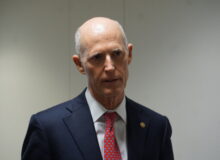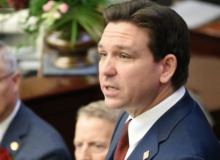(March 17) Based on what U.S. officials knew 20 years ago, they were absolutely justified in taking military action to evict Saddam Hussein from power in Iraq. Twenty years later, the world remains, on rough balance, better off because they did.
Despite all the United States and its allies got wrong operationally in Iraq in the past two decades, it also did a lot of things right and for good reasons — and with some markedly good results.
On March 19, 2003, there were several big reasons why decision-makers were right to order an assault on Saddam’s forces. And there were at least eight good results that flowed from the eviction of Saddam and the long-running allied presence in Iraq. Alas, not all those positive results lasted, largely because of bad decisions made after the initial fighting was won. Enough of them lasted, however, to make the overall effort, flawed as it was, still more salutary than allowing Saddam to remain in power.

The prewar reasons for military action, in rough order of logic rather than of moral import, were as follows. Saddam himself was a threat to world peace and human lives just by holding power. This understanding was reflected in a long series of increasingly explicit U.N. mandates and the goal of U.S. policy at the time, which recognized the necessity of forcefully evicting Saddam. (For an essential and comprehensive compilation of these laws and resolutions, with links to each source document, readers really should go to the website Operation Iraqi Freedom FAQ.) He was unalterably duplicitous, ruthless, and murderous. The next reason involved weapons of mass destruction: Saddam did maintain some stores of WMDs; he had not accounted for ones that had been degraded, secretly moved, hidden, or destroyed; and he had an ongoing (if impaired) program to reconstitute WMDs that he could soon ramp up if the already-tottering sanctions regime against him collapsed.
Then there was terrorism, obviously a preeminent concern after the attacks of 9/11. While Saddam didn’t instigate 9/11, his regime deliberately harbored and sometimes actively abetted dangerous terrorists such as Abu Musab al Zarqawi, Ramzi Yousef, and Abu Nidal, provided payments to the families of terrorists, and sponsored a terrorism training center at Salman Pak, near Baghdad…… [The full column, which I think is REALLY important to set the record straight, and which ran aas the cover story of the Washington Examiner magazine, is at this link.]






